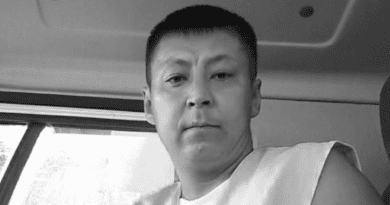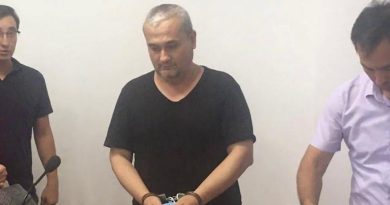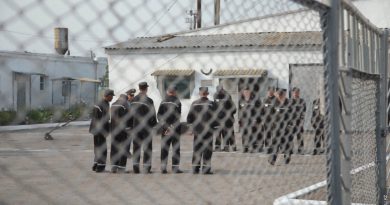Uzbekistan: punishment for resistance to the authorities and security forces increases
The Senate at the nineteenth plenary session approved the law On Amendments to the Criminal Code of the Republic of Uzbekistan and the Code of the Republic of Uzbekistan on Administrative Responsibility. Now the punishment for resistance to a representative of authority or a person performing official and civic duty is being toughened.
There will be an increase in responsibility for failure to comply with the legal requirements of an employee of the internal affairs bodies or a serviceman (employee) of the National Guard, resistance to the performance of their official duties, and failure to comply with the legal requirements of a representative of the government or resistance to the performance of his official duties.
There is no detailing of the forms of punishment and measures of responsibility in the draft law, which will soon fall on the president’s table.
As the ACCA expert notes, “these decisions are immoral in their essence in a country with an effective repressive apparatus. The recent examples of the arbitrariness of the authorities and the security forces are the best confirmation of this. ”
Recall that on September 22, at least four national guardsmen and employees of the Ministry of Internal Affairs, by order of the local authorities, forcibly placed the mother of two children from the Kashkadarya region in a psychiatric clinic for a day. A day after the incident, 37-year-old Dildora Khodzhakulova was hospitalized with bruises on her body, where she remains after the beatings. An absolutely healthy woman tried to defend her rights and the rights of a child in a property dispute ignored by the Yakkabag administration with her ex-husband, who is a regional deputy. The woman threw the kettle against the wall in what was seen as a riot.
In the publication, ACCA reported how the meeting of a human rights activist from the Open Line initiative group Gulbahor Islamova in the department of the Ministry of Internal Affairs of the Yunusabad district of Tashkent ended with beatings on May 19. Trying to take away the smartphone and erase unwanted notes, the deputy head of the District Office of Internal Affairs Dzhokhongir Isroilov bit the activist. The ministry still does not respond to the complaint, as if protecting its employees from nervous shocks. It is not for nothing that the Uzbek senators are now confident that now, under the new law, “the protection of the health and safety of life of government officials will be ensured.”
As ACCA previously reported, in June of this year, the head of the temporary detention center in the Zaamin district of the Jizzakh region beat and raped the woman under investigation for eight days. The local prosecutor’s office, having launched an investigation into the initiated criminal case, is trying to ignore the facts of sexual violence and is conducting an investigation under Articles 205 (“Abuse of power or official powers”) and 221 (“Disobedience to the legal requirements of the administration of the institution for the execution of punishment”).
The problem of torture in the system of the Ministry of Internal Affairs is so acute that the Ministry of Justice will soon launch training courses on combating torture for employees of operational-search, investigative bodies, and employees of penitentiary institutions. This is probably a formal event because the apotheosis of the disregard for human rights was the position of the head of the press service of the Ministry of Internal Affairs Shokhrukh Giesov. In one of his speeches, the officer immediately removed the blame from the preventive inspectors suspected of the beatings. He spoke of the dead as marginalized and “god-damned people.”
The new law looks especially cynical, given the practice of using forced psychiatric detention to suppress discontent in the country when the population becomes a weak side in a conflict with the authorities and security services. Cases have been documented in which human rights defenders were forcibly placed in psychiatric institutions in retaliation for their activism.




